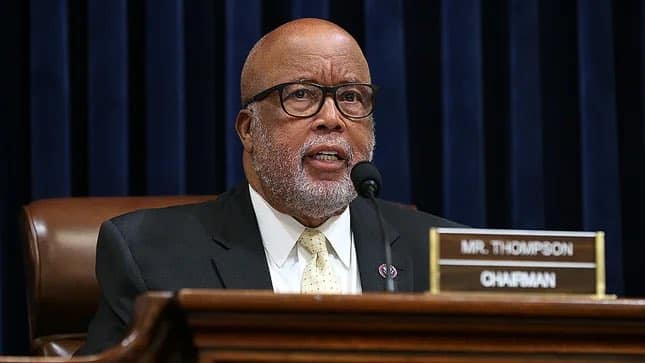After the U.S. House of Representatives passed legislation aimed at securing elections, Mississippi Congressman Bennie Thompson is saying the bill does not fulfill its intended purpose.
Republican President Donald Trump has long harped on keeping illegal immigrants from participating in American elections and has made it a priority to push Congress to take action to address this concern. Though evidence is insufficient to support the notion that noncitizen voters have swayed elections in the past, the GOP-majority House passed the Safeguard American Voter Eligibility (SAVE) Act by a vote of 220-208.

Mississippi’s three GOP Congressmen (Reps. Trent Kelly, Michael Guest, and Mike Ezell) joined their Republican colleagues in supporting the bill unanimously. Thompson, the state’s only Democrat on Capitol Hill, sided with the overwhelming majority of his party in dissenting against the legislation.
The SAVE Act, if passed, would require all U.S. citizens to present proof of citizenship — whether that is a birth certificate or passport — when registering to vote or updating registration information. The goal of the legislation, per Republican leadership, is to protect American elections from outside influence by preventing noncitizens from voting.
“Free, fair, and honest elections unmarred by fraud, errors, or suspicion are fundamental to maintaining our constitutional Republic,” a statement from the White House reads. “The right of American citizens to have their votes properly counted and tabulated, without illegal dilution, is vital to determining the rightful winner of an election.”
Current law bars noncitizens from voting in presidential and congressional elections. There are also consequences for illegally participating in the civic process, including up to a year behind bars or even deportation. Taking extra steps to secure elections, albeit a noble cause on the surface, could have unintended consequences.
Allegations that tens of millions of U.S. citizens could be disenfranchised by this legislation, including married women, married gay men, the elderly, veterans, and voters of color, have picked up steam. Analysis from the Brennan Center for Justice finds that more than 21 million Americans do not have immediate access to documents outlying proof of citizenship. The numbers show that a higher percentage of Black Americans lack these crucial documents than white Americans.
Additionally, nearly 70 million women who have changed their names after getting married or divorced would have to take additional steps to regain eligible voting status. This also applies to gay men who have undergone a name change during a marriage or divorce. For veterans, the SAVE Act would eliminate military identification cards as adequate proof of citizenship.
Congressman Thompson, an avid critic of this effort by Trump and the Republican Party, believes there is a larger agenda at play — to willfully suppress American voters. Instead of passing this bill, Thompson encouraged his GOP counterparts to prioritize urging the president to restore funding to federal agencies dedicated to protecting the election process.
“The SAVE Act has nothing to do with election security. It’s window-dressing on voter suppression. If Republicans cared about election security, they’d stop Trump from defunding the EI-ISAC (Elections Infrastructure Information Sharing and Analysis Center), gutting CISA’s (Cybersecurity and Infrastructure Security Agency) workforce, and deprioritizing efforts to counter Russian cyber threats,” Thompson said.
The SAVE Act has nothing to do with election security. It’s window dressing on voter suppression.
If Republicans cared about election security, they’d stop Trump from defunding the EI-ISAC, gutting CISA’s workforce, & deprioritizing efforts to counter Russian cyber threats.
— Rep. Bennie G. Thompson (@BennieGThompson) April 10, 2025
Though the SAVE Act worked its way through the House, it faces a large hurdle in the Senate. The GOP’s thin Senate majority is not enough to advance the bill with the 60-vote threshold to avoid a filibuster, and Democratic support for the bill is borderline nonexistent in the chamber.







